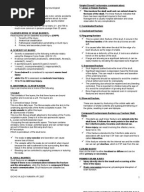Emergency Nurse Pediatric Course Study Guide
Posted : admin On 31.12.2019Emergency Nursing Pediatric Course (ENPC) Accurate assessment of a child with an acute illness or injury requires special knowledge and skills. ENA’s two-day Emergency Nursing Pediatric Course is designed to provide the core-level pediatric knowledge and psychomotor skills needed to care for pediatric patients in the emergency setting. The course presents a systematic assessment model, integrates the associated anatomy, physiology and pathophysiology, and identifies appropriate interventions.
ENPC is the only pediatric emergency nursing course written by pediatric nurse experts. ENPC uses a variety of formats, including online learning, lectures, videos, group discussion and hands-on skill stations, that encourage you to integrate your psychomotor abilities into a patient situation in a risk-free setting. Topics include epidemiology, assessment, triage, respiratory emergencies, respiratory failure, shock, pediatric trauma, child maltreatment, neonatal emergencies, medical emergencies, crisis intervention, environmental issues, toxicological issues, ethical and legal issues, stabilization and transport.
Skills stations include airway/ventilation, position/securing, vascular access/medication administration, pediatric multiple trauma, pediatric resuscitation, and triage. ENA’s Emergency Nursing Pediatrics Course includes:. Ford f150 triton v8 manual. A two-day intensive course with expert instructors.
Course Of Study
ENPC is a two-day intensive course taught by expert instructors. There is a faculty ratio of approximately one faculty per four learners. Hands-on training using both an individual and team approach. Six teaching scenarios offer you the opportunity to practice the systematic approach of the initial assessment in real-life situations. Online learning: Five online modules allow you to learn at your own pace and refer back to information at any time. Evidence-based content developed by pediatric emergency experts. The 23-chapter, comprehensive Emergency Nursing Pediatric Course Provider Manual, 4th Edition, includes special emphasis on age and developmental stages.

To Register for ENPC. Contact the course director for your preferred location and register. To view all available courses and locations, or call 800.942.0011.
Fees, times, registration deadlines and prework/pretests will vary by location. Emergency Nursing Pediatric Course Provider Manual, 4th Edition is required for the course and is available from your course director. Access the online modules, using the code you receive when you register.
You may purchase the online modules separately for $49.95; however, please note that this amount cannot be applied to the registration fee for the full ENPC. 15.58 contact hours An ENA ENPC four-year provider verification card will be issued to those registered nurses who achieve 80% or higher on the multiple-choice exam and 70% or higher on the skill station evaluation.
Certified emergency room nurses are registered nurses who specialize in providing immediate care to patients with acute injuries, critical illnesses and other potentially life-threatening conditions. These nurses must efficiently respond to a variety of medical situations, including respiratory, cardiovascular and other trauma emergencies. They need a nursing diploma or degree and a state license. They can earn optional professional certification as an emergency room nurse by passing examinations. Required Education Diploma, associate's or bachelor's degree in nursing License State nursing license; certification available through the Emergency Nurses' Association Projected Job Growth (2014-2024) 16%. Median Salary (2015) $60,846. Sources:.
U.S. Bureau of Labor Statistics (BLS),.PayScale.com. Emergency room nurses work directly under doctors in hospital emergency room or urgent care settings and are responsible for attending patients with serious illness or injuries. Duties might include patient assessment and diagnosis, tending to wounds and injuries, monitoring temperature and blood pressure, taking vital signs and setting up IVs. The majority of certified emergency room nurses work in hospitals, however, these nurses can also work in urgent care facilities, government offices, poison control departments, helicopters and ambulances, sporting events, cruise ships, prisons and other establishments. Clinical Nursing. Critical Care Nursing.
Direct-Entry Midwifery - LM, CPM. Licensed Vocational Nurse Training.
Mental Health Nursing. Neonatal Nursing. Nurse Anesthetist. Nurse Assistant or Patient Care Assistant. Nurse Midwife. Nurse Practitioner or Family Nurse Practitioner.
Nursing Administration. Nursing for Adults and Seniors. Nursing Science. Occupational Health Nursing. Operating Room and Surgical Nursing. Pediatric Nursing. Public Health Nurse or Community Nurse.
Registered Nurse. At minimum, a certified emergency room nurse must have a registered nursing credential, which requires completion of a nursing program, usually taking 2-4 years.
There are three ways to complete a registered nursing program, including earning an associate's degree, bachelor's degree or a diploma from an approved nursing school. Though bachelor's degree programs usually offer students more clinical practice, all registered nursing programs prepare students with classroom instruction on important components of nursing, including classes on anatomy, physiology, nutrition, statistics, microbiology, ethics and client assessment.
Through clinical practice, potential nurses learn to work with a variety of patients, including infants, adults and medical health patients. Certification Upon completion of a registered nurse degree program, students are eligible to sit for the National Council Licensure Examination for registered nurses, also known as NCLEX-RN. Those nurses interested in specializing in emergency room care can obtain an additional certification in the field by passing the Certified Emergency Nurse exam offered through the Emergency Nurses Association (ENA). This exam tests nurses on a variety of emergency room situations, including gastrointestinal emergencies, neurological emergencies, respiratory emergencies, substance abuse emergencies and wound management.
Additionally, the ENA offers a Certified Pediatric Emergency Nurse (CPEN) certification, as well as courses in advance trauma nursing. Emergency room nurses must first complete their schooling as nurses before specializing as emergency room nurses. Nurse training can be completed through a diploma or degree program. Upon completion of their schooling, nurses are able to be certified through the Emergency Nurses' Association to become certified emergency room nurses.

Aspiring emergency room nurses can enroll in a relevant certification program. Curriculum includes clinical hours and. Learn about the job responsibilities of an emergency room nurse. Explore licensing and educational requirements in addition to. Certified emergency or trauma nurses work in hospitals and intensive care units assisting doctors and medics during emergency. Certified Emergency Nurse is an optional credential for nursing professionals.
Get some quick facts about the education and.